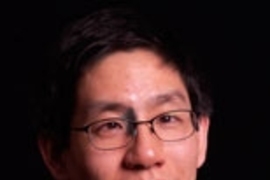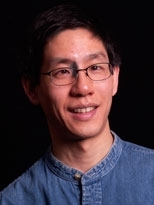MIT has been awarded a $3 million grant from the National Science Foundation to establish a pioneering doctoral-study program in the growing field of quantum information science (QIS), which has evolved rapidly recently with a new influx of ideas from quantum physics and poses great potential in supercomputing.
The new graduate training program, called Interdisciplinary Quantum Information Science and Engineering (iQuISE), will seek to nurture a new generation of students, from education through employment, to become tomorrow's quantum information scientists and engineers.
"The education dilemma facing quantum information science and engineering is keenly felt at MIT because of our leadership role in the field," said Isaac Chuang, associate professor of electrical engineering and physics and principal investigator of the new program.
"MIT has research groups and classes in QIS, led by the field's pioneers, but the very diversity and richness of our resources creates a great challenge to giving our students a coherent experience. With the NSF's generous support, which will combine with resources that the Institute will devote as well as participation from a broad consortium of government and industry partners, we are going to tackle this challenge with an innovative, interdisciplinary approach to training the new generation of QIS scientists and engineers."
Jeffrey H. Shapiro, Julius A. Stratton Professor of Electrical Engineering and Director of the Research Laboratory of Electronics (RLE), and Seth Lloyd, Professor of Mechanical Engineering and Professor of Engineering Systems, are the co-principal investigators. Senior faculty investigators and graduate students from seven MIT academic departments and divisions in both the School of Science and the School of Engineering will work together to form the program, which will be administered centrally by RLE.
"There is widespread belief that fundamental ideas from QIS will lead to useful new information technologyand provide computing, communication, and control systems beyond the limits of traditional paradigms," said Shapiro. "These carry with them profound social implications. This is why iQuISE will incorporate education in ethics and social context."
Lloyd noted, "The students in MIT's new NSF training program will be encouraged to cross disciplines, and develop a common fellowship with their peers. We will also address training for post-academic jobs directly by connecting students to government and industrial members of the iQuISE Consortium."
The new doctoral training program would not be possible without strong and widespread support from MIT. "The iQuISE program represents a bold step forward to coalesce and cohere the education and research training that will produce a new generation of quantum information researchers for our nation," said Claude R. Canizares, Bruno Rossi Professor of Physics and Vice President for Research and Associate Provost. "It is especially gratifying that MIT's strengths in bringing together different disciplines into innovative cooperation will be the backbone of this new program."
MIT academic departments and divisions that will have faculty and students participating in iQuISE include Electrical Engineering and Computer Science, Physics, Mechanical Engineering, Mathematics, Nuclear Engineering, and Engineering Systems.







